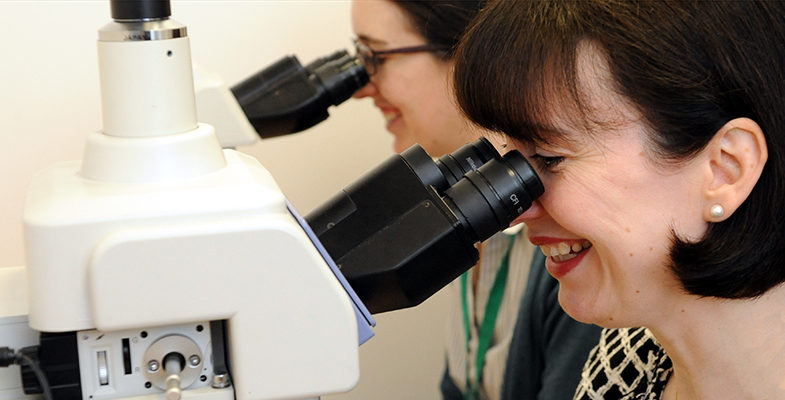Archived and withdrawn documents
Listed below are previously published College guidance and best practice recommendation documents. They have been withdrawn from general circulation as they are no longer up to date. They should only be used for historical purposes.
Cross-specialty documents
- The document Out-of-hours reporting of laboratory results requiring urgent clinical action to primary care, 2010 has been superseded by The communication of critical and unexpected pathology results in our Cross-specialty publications section
- The retention and storage of pathological records and specimens, 4th edition (Aug 2009) and 3rd edition (Oct 2006) - the 5th edition (April 2015) is available in our Cross-specialty publications section
- Questions and answers: The Human Tissue Act 2004, Oct 2006
- Guidelines on the release of specimens and data to the police and other law enforcement agencies, Oct 2006
- Concerns about performance in pathology: Guidance for healthcare organisations and pathologists, Feb 2006
- Codes of practice for pathology services and departments, May 2005
- Good Medical Practice in Pathology, 2002
- College advice relating to the ownership, storage and release of pathology results, Jan 2000
- Transitional guidelines to facilitate changes in procedures for handling ‘surplus’ and archival material from human biological samples, 2001 – see the Human Tissue Authority (HTA) website
- Draft guidelines for the involvement of biomedical scientists in the dissection of specimens and selection of tissues, 2001. Superseded by 'Joint RCPath/IBMS Working Group on the implementation of the extended role of biomedical scientists in specimen description, dissection and sampling – Final report', 2004
- Pathology: The hidden science that saves lives, 2000
Ethics
- Clinical governance of NHS staff in single-handed practice with particular reference to point-of-care testing, Mar 2007
- Use of specimens from healthy volunteers, Aug 2005
- Ethical issues in organ and tissue transplantation to humans, Aug 2005
- A brief guide on consent for pathologists, Nov 2008
- Guidance on consent for the processing and analysis of clinical samples following an initial consultation, Nov 2008
Forensic pathology
- Guidance for retention of brain and spinal cord following post-mortem examination and where criminal proceedings are in prospect, Apr 2010
- Deaths in Major Disasters: The Pathologists' Role, 2nd edition, 2000 (under review, late 2015)
Genetics
- Code of practice for genetics laboratories, Aug 2006
Histopathology/cellular pathology
- Guidelines on autopsy practice, including best practice scenarios, from May 2010 - Please note: a major programme is underway in 2016-17 to review all these guidelines, see our Autopsy guidelines series page.
- The new/updated scenarios are being published under the 'Histopathology/Cellular pathology' heading of the Specialty-specific publications page.
- Code of practice for histopathologists and histopathology services, Jan 2010
- Best practice in lymphoma diagnosis and reporting, a joint RCPath/BCSH document, Jan 2008
- The recognition and roles of specialist cellular pathologists, Jun 2006
- Datasets, TNM and dysplasia: news and views from the Working Group on Cancer Services, Jan 2006
- Histopathology of limited or no clinical value, 2nd edition, Dec 2005
- Pathology reporting of breast disease, Jan 2005, amended Oct 2005, (under review, Mar 2016)
- Joint RCPath/IBMS Working Group on the implementation of the extended role of biomedical scientists in specimen description, dissection and sampling, Jan 2004
- Code of practice for pathologists participating in remote reporting of histopathology or cytopathology, Aug 2003
- Guidelines for the retention of tissues and organs at post-mortem examination. See Human Tissue Authority website, hta.gov.uk, 2000
- Recommendations for the Development of Histopathology/Cytopathology EQA Schemes, 1998
- Relatives' Leaflet: Examination of the Body After Death - Information about Post-Mortem Examination for Relatives, 2000.
- See the HTA website and Department of Health guidance: 'Families and Post-Mortems: A code of practice, forms and information leaflets', 2003
- Telepathology: guidance from the Royal College of Pathologists, October 2013
- Communication of unexpected findings, urgent reports, delayed reports and the use of Alert systems in diagnostic cellular pathology: Guidance from The Royal College of Pathologists. Please note: for information related to this subject, please see The communication of critical and unexpected pathology results
Immunology and allergy
- Allergy Services: Still not meeting the unmet need, Jun 2010
Medical microbiology
- Intercollegiate Report on Reducing Transmission of HIV from Mother to Child in the UK, Jul 2006
- National guidelines on a standardised proforma for 'chain of evidence' specimen collection and on retention and storage of specimens relating to the management of suspected sexually transmitted infections in children and young people for medicolegal purposes, May 2005 (under review, March 2016)
Neuropathology
- Neuropathology autopsy practice: post mortem examination in patients with traumatic brain injury, Apr 2010
- Guidance for retention of brain and spinal cord following post-mortem examination and where criminal proceedings are in prospect, Apr 2010
Paediatric pathology
- Sudden Unexpected Death in Infancy, Sep 2004 (see above)

